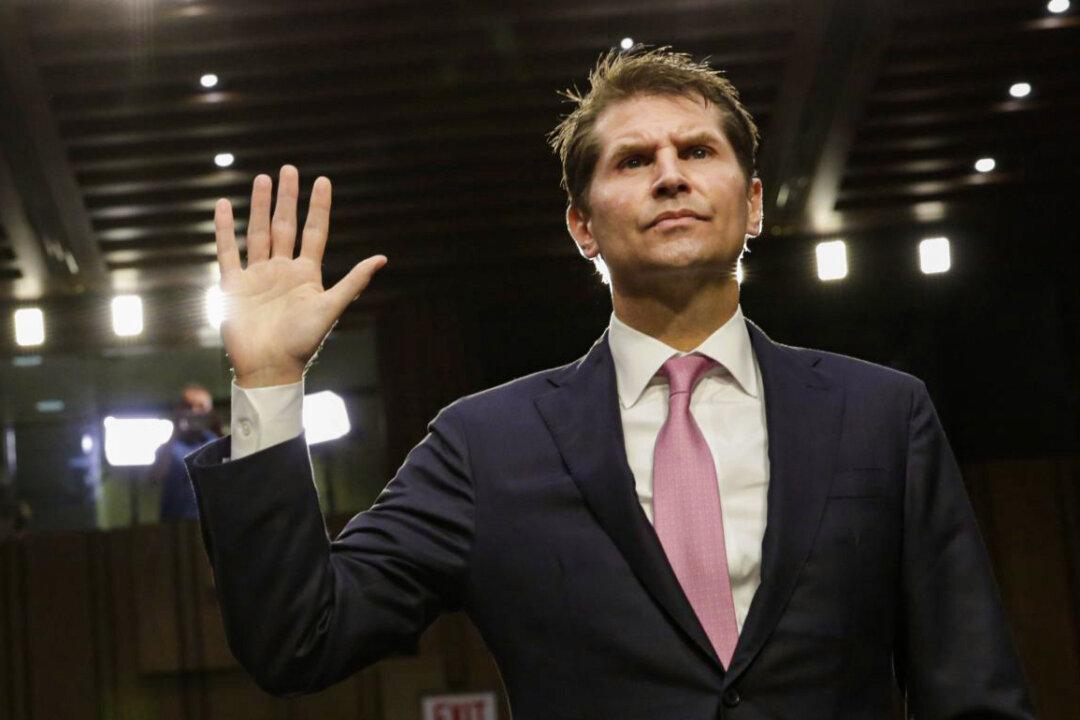Former Clinton Campaign attorney Michael Sussmann’s attorneys want notes recorded by two FBI officials from being introduced as evidence when their client goes on trial for lying to the agency in September 2016 as he delivered debunked allegations regarding a “secret server” link between the Trump Organization and a Russian bank.
In a 46-page motion filed on April 15, attorneys Sean Berkowitz, Michael Bosworth, Natalie Hardwick Rao, and Catherine Yao of Latham & Watkins LLP argue the notes are inadmissible “unreliable triple hearsay” and unrelated to the charge against Sussmann.





